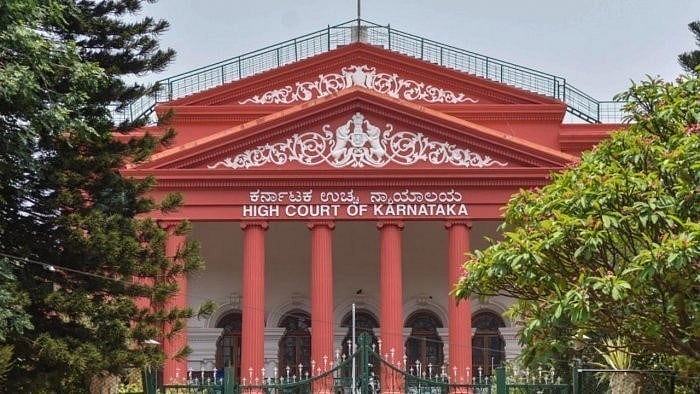
Karnataka High Court
Credit: DH File Photo
Bengaluru: The Dharwad bench of the Karnataka High Court said that the power to remand an accused in the interregnum of filing of the chargesheet and the actual date of taking the cognizance is inherent in the trial court. Justice V Srishananda said this while dismissing the petition filed by an accused in a case registered under the Protection of Children from Sexual Offences (POCSO) Act.
The petitioner is accused of sexual assault on a class 9 student. The Adur police had arrested the accused on November 26, 2024. The accused had moved the trial court seeking statutory bail on the ground that investigation was not completed within 60 days. On February 1, 2025, the trial court rejected the petition filed by the accused after the police claimed that the chargesheet was submitted on January 24, 2025.
Challenging this order, the accused contended that the chargesheet was filed only on January 29, 2025 and the chargesheet was received by the office of the trial judge and cognizance was taken. It was further argued that under Section 193(2) of BNSS, it was incumbent on the part of the investigating agency to complete the investigation within a period of 60 days from the date of receipt of the information, which is on November 25, 2024.
Justice Srishananda noted that on the chargesheet itself, the trial judge has made an endorsement that the chargesheet is received and endorsement reads that ‘check and then put up’ and the signature of the trial judge is dated January 24, 2025. “After the chargesheet is filed, the power to remand exists in the court till the ministerial act of verification of the charge sheet papers are carried out and till the date of taking of the cognizance is under Section 346 of the BNSS,” Justice Srishananda said.
The court further said, “Since the accused-petitioner is arrested on the very next day on November 26, 2024, filing of the chargesheet on January 24, 2025 is well within the ambit of Section 193(2) of the BNSS in the case on hand, which is sufficient compliance of the said provision. In view of the principles of law enunciated in the case of Suresh Kumar Bhikamchand Jain by the Supreme Court, this court is of the considered opinion that rejection of the petitioner seeking grant of statutory bail is justified. However, dismissal of the present petition would not come in the way of the petitioner seeking regular bail in accordance with law.”